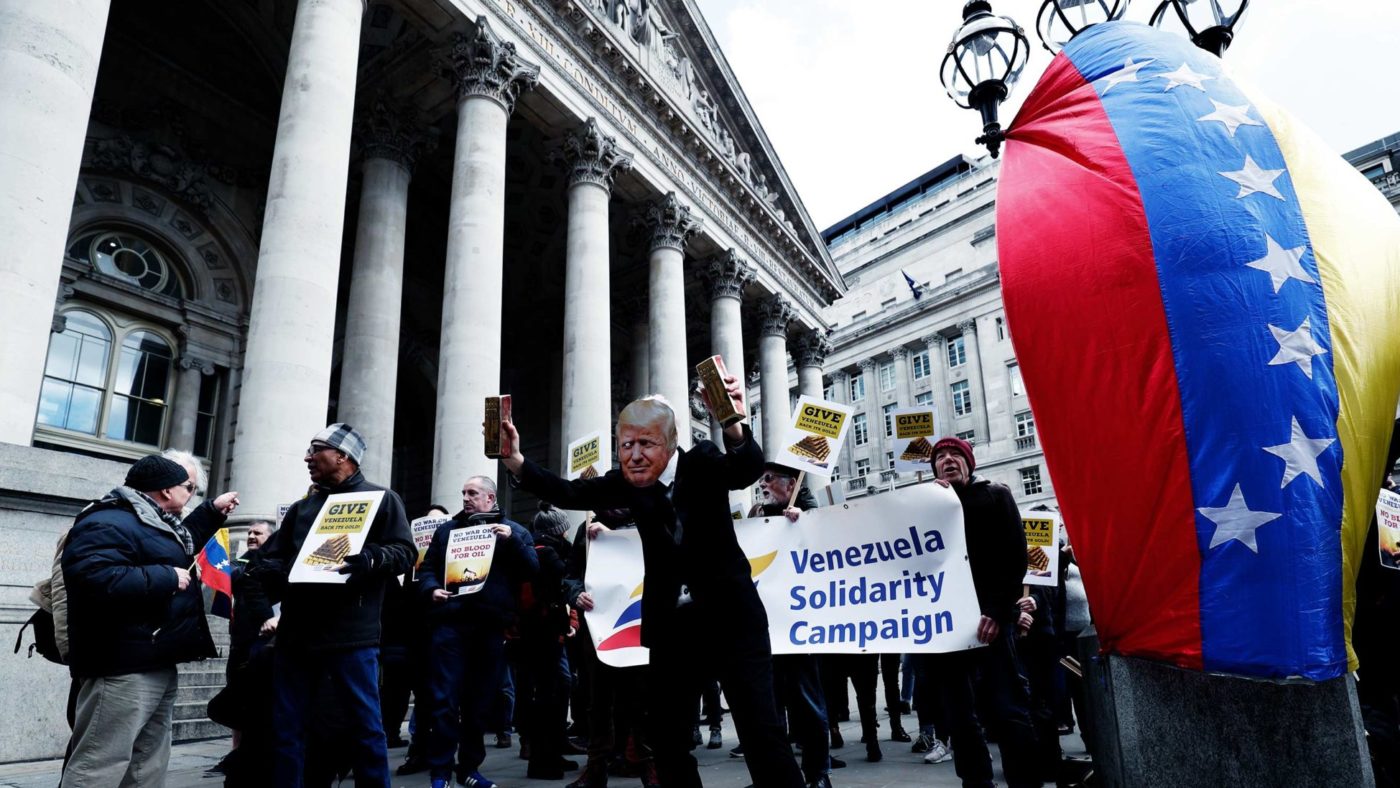Last Thursday I found myself, out of some half-crazed notion of journalistic duty, spending an evening with the Venezuela Solidarity Campaign. In case you’re not familiar with their work, VSC are our own home-grown apologists for the diabolical regime of Nicolas Maduro.
Oddly enough, the rally took place at the headquarters of the National Education Union (NEU), the UK’s foremost teaching union, in genteel Bloomsbury. Quite why the NEU have concluded it serves the interests of Britain’s teachers to provide political cover to an economically illiterate tyrant was not clear, though doubtless there’s a perfectly logical explanation.
Security on the door was provided by three men, trade unionists I believe, wearing yellow tabards. Exactly who they were tasked with keeping out I’m not sure. Actual Venezuelans, perhaps, as I never came across any on the inside. The venue was a large conference hall with perhaps 250 people in attendance. Having made my way past the activists handing out leaflets to all manner of future left-wing events, and the stall selling t-shirts bearing the image of former Venezuelan strongman Hugo Chavez, I took my seat.
The panel was made up of a mixture of hard-left activists and trade union figures, none of them from South America, let alone the country in question. The left trade union movement was represented by Tony Burke, assistant general secretary at Unite, Doug Nicholls, the general secretary of the GTFU and Christine Blower, the former head of the National Union of Teachers. They were joined by writer Tariq Ali and Kate Hudson, head of the Campaign for Nuclear Disarmament (CND). The Labour Party, also had representation in the form of Huda Elmi, who sits on the National Executive Committee. Although Jeremy Corbyn did not personally attend, there was a message of support from Dan Carden MP, the Shadow International Development Secretary.
As the speeches began I was gradually transported into an alternative reality. On the surface it bore some relation to the world I know. The names, for example, were the same. Donald Trump, Nicolas Maduro, Juan Guaido and so on. But beneath this facade everything had changed. Guaido, the Venezuelan opposition leader, was no longer a social democrat from a party with historic links to Labour. Instead he was a dangerous right-winger, a puppet of American imperialism at best, an outright fascist at worst. The term ‘fascist’ was machine-gunned at the Venezuelan opposition, who were compared to the movement around far-right Brazilian President Jair Bolsonaro. One speaker accused Guaido of having incited violence. Make the lie big enough, and assert it aggressively enough, and you will be surprised what some people are prepared to swallow.
The target of the rally, the true villain of their story, was, of course, America. Indeed the rally was titled “Stop Trump’s Interventions in Latin America”. This focus was understandable. Defending a country which had an inflation rate of 80,000 per cent last year, and which has seen 2.3 million of its citizens leave since 2015, would challenge the resolve of all but the most resolute workers’ champions. Far better to change the subject. We were reminded, repeatedly, that Venezuela has the largest known oil reserves in the world, which American companies apparently want to grab. At one point the audience was encouraged to chant “no blood for oil”, as though re-enacting the 2003 Iraq War protest movement. The irony of a country with such an abundance of natural resources descending into economic calamity went unstated.
Now the speakers may have been fantasists but they weren’t entirely without critical faculties. They realised the economy of Venezuela hadn’t been developing quite as the socialist planners had anticipated. But this, we were repeatedly told, was the fault of American sanctions. Uncle Sam apparently couldn’t abide a successful socialist economy on its doorstep, and had to kick it to heel. No matter that Venezuela collapsed into recession in 2014, whilst significant US sanctions, restricting the Venezuelan governments access to US financial markets, weren’t introduced until 2017. Only a reactionary would concern themselves with such trivial details.
One speaker did admit some “mistakes” had been made by the Maduro regime, before quickly clarifying that sanctions were primarily to blame for Venezuela’s predicament. Constructive criticism of Maduro’s decisions could be made, he generously conceded, but only so long as it was private. Public criticism was for capitalists and imperialist lapdogs.
Outside the event, clutching a copy of the Morning Star, I finally had time to think. There’s something desperately cruel about sitting comfortably in a free country and apologising for despotism and abuse in some far away land. Some people defend tyranny out of fear, others in return for financial reward. But to do so without compulsion or inducement, based on some warped anti-Western ideology, is nothing more than tragic.
CapX depends on the generosity of its readers. If you value what we do, please consider making a donation.


